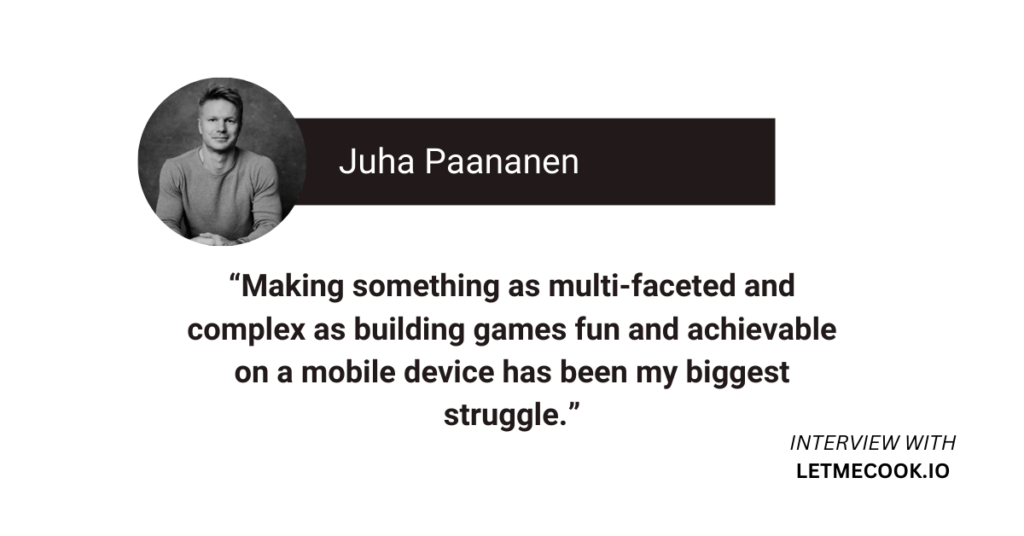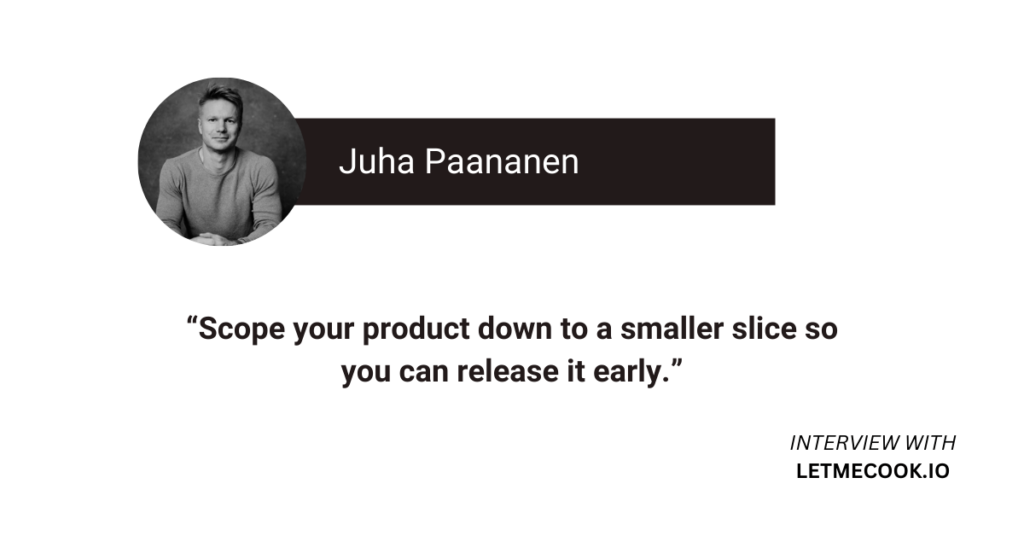Gaming has exploded from a niche hobby to a $282 billion market today, with over three billion people playing video games globally.
Behind the dazzling graphics and intricate storylines lies intense creativity paired with technological innovation.
Yet building a game still remains out of reach for most aspiring creators lacking advanced coding skills. The barrier to entry for game-making has always been high, but for the first time ever, there are companies actively bringing game development to younger generations.
Soba founder Juha Paananen experienced these barriers firsthand, inspiring his mission to open game creation to all.
“Seeing people who haven’t built games before making games on Soba has been my biggest achievement,” shares Paananen. Through his pioneering platform Soba, he’s advancing the frontier of no-code game creation and development.
Table of Contents
How It All Started
Like many future startup founders, Paananen’s passion for building began early. Growing up in the ’80s and ’90s, he discovered coding through iconic games like Civilization, Wing Commander, and X-COM.
Though learning to program challenged him initially, it became a creative outlet. “I wasn’t very good at programming, but this early experience played a significant role in my life,” he admits. His first triumph – designing a 3D Tetris clone – solidified his lifelong zeal for gaming.
Channeling this drive, Paananen established his own mobile gaming studio after college. Investing in the industry broadened his perspective on propelling innovation. Yet limitations in game development tools continued hindering new creators from entering the scene.
Juha Paananen dreamed of an inclusive and accessible, mobile-based platform enabling anyone to build multiplayer 3D games. And this vision seeded the beginnings of Soba.
Soba’s Ripe Beginnings
Named from the Japanese word expressing simplicity, Soba captures that core ease of use Paananen envisioned. “With Soba, we want to create a simple yet powerful no-code tool to enable a wider range of individuals to build games,” he explains.
While most games are built on computers, not everyone can access them, and creation can only happen in one place. Plus, the younger generations prefer to consume and create content on their mobile devices.
That led to Paananen saying, “We really want to make game creation more inclusive, allowing more people to express their creativity without the barriers of technical expertise.”
The foundations for Soba began by addressing roadblocks Paananen himself faced when designing games.

By constructing Soba “mobile-first”, he and his team could cater perfectly to that on-the-go experience. Breaking development into intuitive pieces also smoothed the process for newcomers. “Being ready to make the changes that being mobile-first requires,” he shares as one key lesson.
Soba’s online platform features a robust editor toolbox enabling players to craft intricate 3D worlds. Drag-and-drop pieces snap together easily without needing to touch any coding. The creator’s imaginative kingdoms then come alive as vibrant multiplayer spaces friends can explore together.
“There are over 3 billion people playing games, but only a small fraction is able to build games,” stresses Paananen on barriers he seeks to dissolve with Soba.
Early user testing showcases individuals with zero experience programming their own masterpieces.
“We’ve reached an audience that’s highly aligned with ours and which provides valuable feedback,” Paananen remarks on strategically engaging micro-influencers enthusiastic about game creation tools. Their input continues guiding enhancements tailoring Soba to first-timers.
But what makes Soba unique is that it has created its own infrastructure and community. Rather than simply being a hub for game development, it’s a fully-fledged community where developers can share ideas, discussions, and of course, games.
Read our full Soba review here.
This community “feel” is what keeps people intrigued, curious, and creative. It’s the “wow” factor. And it’s the backbone of a sustainable marketing strategy, creating word-of-mouth referrals based on positive user experiences.
Juha’s Advice and Greatest Takeaways
Juha’s number one piece of advice for other startups combines simplicity and complexity:

By narrowing down your upfront workload, you can begin testing and receiving feedback. Similar to game development as Juha compared, you want to be testing as soon as possible. That way, you can validate your concept quickly and solve other problems simultaneously.
For Soba, that meant trying out various marketing strategies, some that worked and some that didn’t…
- Most Successful Marketing Strategy: Influencer Marketing. Engaging with key figures in Soba’s game-creation journey allowed Juha to reach an audience that is highly aligned and that provides valuable feedback for continual product improvement.
- Least Effective Marketing Strategy: Social Media Marketing. Testing from the very beginning allowed Juha to find what worked and double down on it.
Juha Paananen’s thoughts on his least effective marketing strategy:

What’s Next for Juha Paananen?
Looking ahead, Paananen envisions Soba spearheading greater access in play. “In the next 5 years, we want to see Soba leading the charge in democratizing game creation, breaking down barriers that have traditionally kept many potential game creators on the sidelines.”
He’s excited for both the platform and community to evolve, welcoming fresh voices and gameplay styles. “We hope to see a diverse range of games that would not have been possible otherwise and offer new, unique experiences to players around the world.”
Juha Paananen aspires to make this goal a reality through Soba’s intuitive, no-code platform. Just as playing games shaped his own remarkable journey, he now pays that creativity forward by empowering the next generation of game designers through Soba.
The future of gaming lies wide open for all to explore.
If you or someone you know is a SaaS founder who wants to be featured in our next Who’s Cooking founder profile, comment below or email us at maddy@techtonic-marketing.com and we’ll be in touch.




